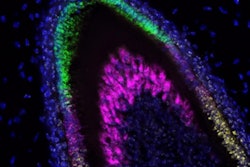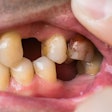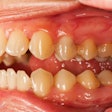
The U.S. National Institutes of Health National Institute of Dental and Craniofacial Research (NIDCR) has awarded a five-year, $2.3 million grant renewal to New York University (NYU) College of Dentistry researchers to study the role of mitochondria in the formation of tooth enamel.
Building on prior research that investigated how genetic diseases such as Down syndrome affect mitochondria and lead to defects in tooth enamel, researchers led by Rodrigo Lacruz, PhD, will use the new NIDCR funds to investigate the interplay between mitochondrial function and enamel formation following exposure to environmental insults, according to NYU.
Environmental insults impair human health. Examples of environmental insults include contaminated air, water, and soil and exposure to occupational and household chemicals, which impair cellular function and lead to many diseases, reducing lifespan. Exposure to environmental chemicals and other agents can also increase the rates of congenital disorders.
Mice with Down syndrome will be used to explore the stages of enamel development. The researchers will treat cells with fluoride to learn if ameloblasts in the teeth of mice are more sensitive to fluoride.
“People with Down syndrome often present with enamel defects, including hypocalcification and hypoplasia, both caused by developmental defects in enamel formation,” Lacruz said in a statement from NYU. “The overarching hypothesis of this study is that altered mitochondrial function in ameloblasts of those with Down syndrome alters enamel crystal formation and impacts sensitivity to fluorosis.”



















